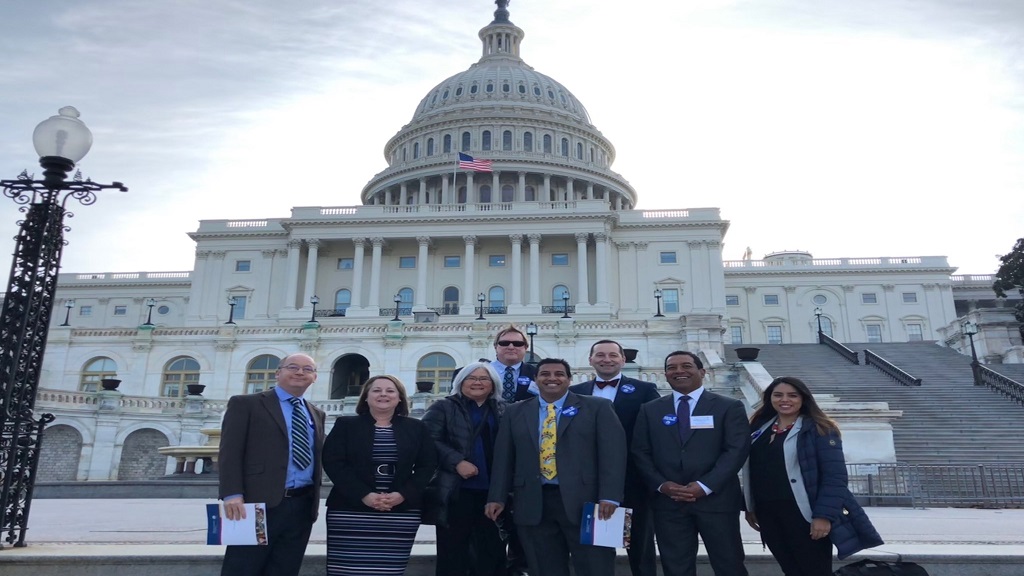In our current political climate, it is increasingly important to stay informed and to use our voices together to build a health care system that serves our patients well and fosters sustainable careers in caring for babies. “Be first, be right, be credible.” As neonatologists, we are the absolute experts about babies and their families—no-one could be more credible! We already know how to care for babies in our NICUs; we also need to assemble a toolbox to be informed, timely, well-prepared with data, efficient/effective in incorporating advocacy into our already busy workflow, and insightful about holders of influence to advocate effectively for our patients, their families and our communities. The AAP is a strong partner in all of this.

Hone Your Advocacy Voice
- Advocacy resources for SONPM members [Use this as your Advocacy Home Page!]
- Neonatology-relevant issue updates
- Legislator contact lists
- Talking points for calls and meetings
- Templates for letters
- “Leave-behinds” with background data for legislative visits
- Toolkits for state advocacy
- SONPM-AC Listserve: join to receive updates on neonatology-relevant legislative issues in play
- Training resources
- AAP Legislative Conference (annual) – SONPM is committed to supporting members to attend this inspiring and instructive conference that takes place every year (except 2020 due to COVID-19) in Washington DC. Section Scholarships are provided—watch for invitations to apply
- Advocacy Workshops at our national meetings: NCE & Scottsdale Workshop
SONPM Advocacy Steering Committee
- 10 member steering committee (2 cochairs, 2 TECAN, 2 MidCAN, 1 WeCAN, 1 WiN, 2 at-large)
- Current members: Lily Lou – Alaska, co-chair
Shetal Shah – New York, co-chair
Ashley Lucke – Texas, TECAN
Ali Slone – Kentucky, TECAN
Tara Randis – Florida, MidCAN
Josh Petrikin – Kansas, MidCAN
Cristiane Dammann – Boston, WiN
Mark Hudak, Florida, WeCAN
Dena Hubbard – Kansas, at-large
_________ - ___, at-large
General pediatric resources:
Some issues impact us all as pediatricians and members of our communities. Topics like racism, health care financing and substance use disorder are relevant to all AAP members. Up-to-date information on Federal Advocacy issues can be found here. Under “Issues”, pediatricians can find background information on priority issues, including information about child health bills on the move. The Advocacy Action Center portion of the website houses AAP Action Alerts with information and talking points about AAP legislative priorities. The Action Center allows pediatricians to send a personalized form letter to their legislators with just a few clicks.
You can sign up to be a Key Contact. This group receives weekly federal legislative email updates containing timely federal policy information and relevant legislative action, as well as requests for federal advocacy, and updates on events taking place with AAP leadership in Washington, DC.
The State Advocacy team works very closely with AAP chapters to monitor state legislative and regulatory activity.
Neonatology-specific advocacy information:
We will post up-to-date information about neonatology-related issues right here! Please visit often for key federal legislative updates relevant to our specialty. We will start with major federal issues, and also hope to expand to include state issues that are critical to neonates. We will provide
- State-of-play updates
- Templates to customize to your own message
- Contact information and links to your Members of Congress:
http://www.house.gov/representatives/find/
https://www.senate.gov/senators/contact/
The AAP Federal Affairs Office values subspecialists speaking up for the children in their practices. They were very helpful in crafting a neonatology specific “leave-behind” information sheet on how essential Medicaid and CHIP are for assuring health care access for neonates, their mothers and families suffering from NAS. They are at our service to help tailor advocacy materials to our specialty as new neonatology-related issues arise. They are also in the know about which of our state legislators are key to each bill, and can notify us individually through the Key Contact List, or through messages here, if our own Senators or Representatives are crucial to contact.
The AAP State Government Affairs Office is your resource for policy issues on a local level. They can provide data on your state compared to others, and are interested in hearing from you about challenges you are facing.
Learn more about Neonatal Priorities for Biden-Harris Administration
Here are some tips on communicating effectively with your representatives:
- Phone calls are the most effective. Be prepared to give your name, address, zip code, phone number and email. Be clear about your position, and a few brief points.
- Writing also counts—each call/email is logged. Each legislator maintains a “.gov” website from which you can send emails. You cannot send attachments if you communicate this way.
- Get to know your federal Senators and Representatives, including their health staffers. Once you have established a relationship, use the staffers’ emails to communicate directly. You can send attachments through this route. Also develop relationships with your state legislators—the voice of someone they know as one of their constituents is the most influential.
- Visit your Members of Congress when you are in DC. Get tips and advocacy materials on current issues and AAP priorities from the AAP Federal Government Affairs Office to optimize your impact with your legislators.
- Don’t assume that your Members of Congress already understand health care. They are trying to know everything they can about everything. Be prepared to set the ground work for stating your concerns by providing a brief background of the issue: children’s health care.
- Share personal stories about your patients, your experiences. They may even want to use these stories themselves, so you might want to provide written accounts, if you have permission.
- Attend the annual AAP Legislative Conference in April in DC to hone your advocacy skills.
Last Updated
08/22/2024
Source
American Academy of Pediatrics